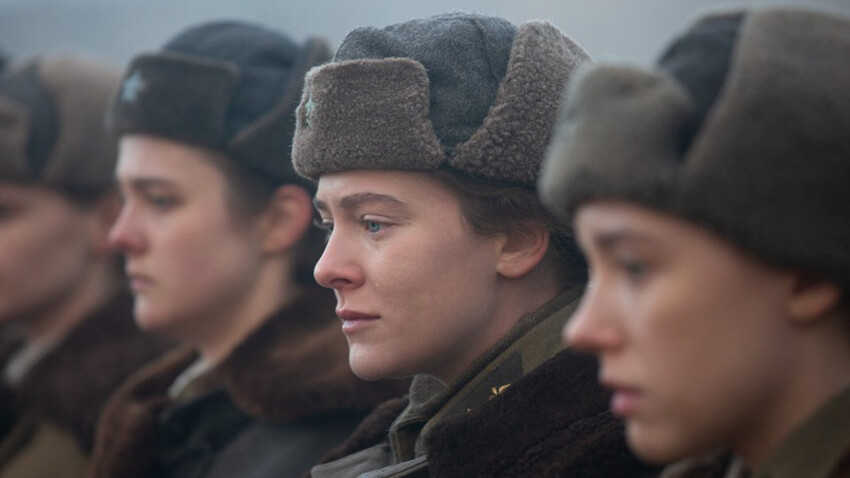
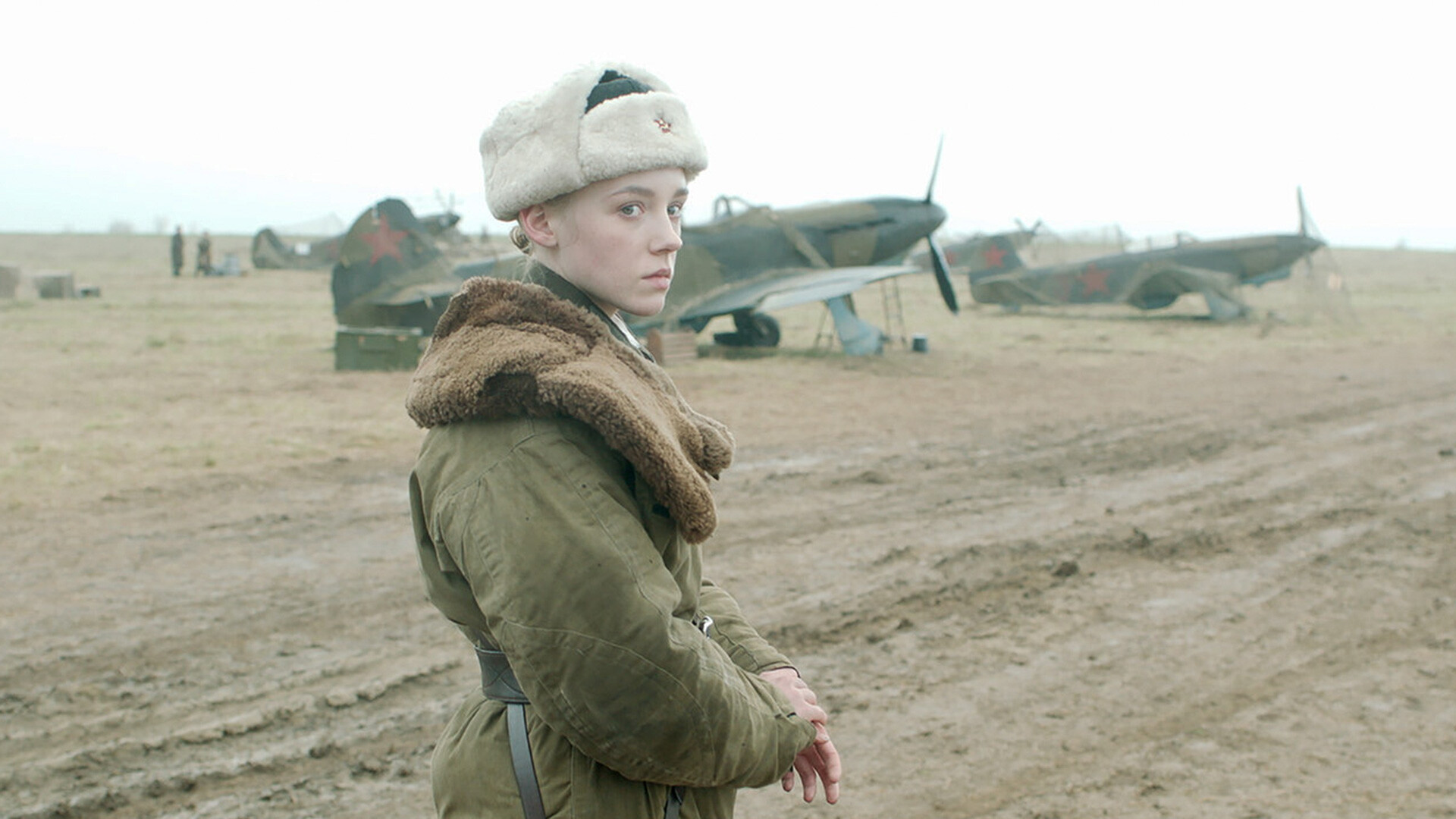
There are a lot of Russian movies about World War II, just like in the USSR; however, they are rarely about women in uniform. Although, according to official data alone, back then, over four years, about half a million women were conscripted into the ranks of the military. Not even counting the women in partisan squads. Among the scarce exceptions of female war cinema are the war drama ‘The Dawns Here Are Quiet’ (1972) about anti-aircraft fighters, nominated for an Oscar, and the recent biography of sniper Lyudmila Pavlichenko, ‘Battle For Sevastopol’ (2015).
‘Air’ fills the accumulated gap in one swipe. First, we follow the fate of a female squadron that operating along the famous ‘Road of Life’ from the air – the only transport route to the besieged Leningrad. However, the plot leads the characters across the incredibly vast geography of war – to the besieged Leningrad, to the trenches of Stalingrad and to the forests, where the partisans are fighting. And we see women everywhere – on equal terms with men.
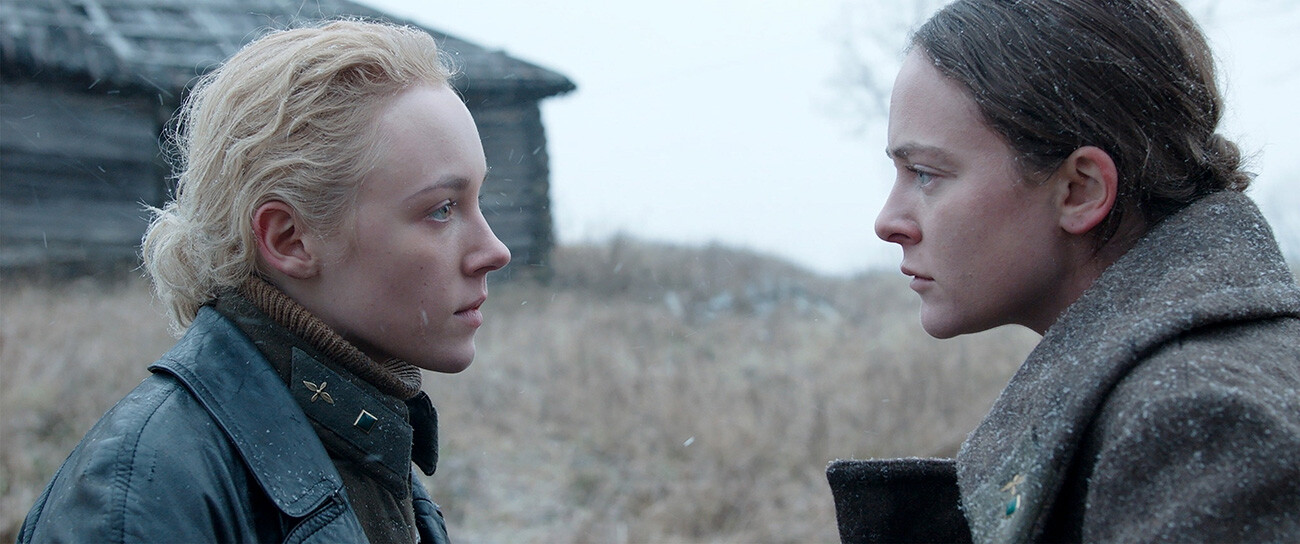
The plot of ‘Air’ follows very young pilots, who are thrown into the heat of war straight out the training facility. It’s already harder for young women, simply due to physical reasons, to tolerate g-force, but outdated aircraft models make everything even worse – their hulls are partially made of wood, with minimal armor, and with their fuel tanks constantly leaking. The enemy, to the contrary, has more experience and better aircraft. Apart from stress and lack of sleep, the women find it, at first, morally hard to be in a male collective, which had received the female reinforcement with a lot of prejudice.
There are a lot of female main characters – initially, more than seven. And, apart from actresses famous in Russia – Anastasia Talysina and Aglaya Tarasova – the movie features a lot of new faces, real female cadets from the MVD and MChS academies. One of the main roles is played by actress of Omsk Drama Theater Kristina Lapshina – this being her film debut. However, with each combat mission, there are fewer and fewer characters – the war ruthlessly taking even the forefront characters, who, according to the laws of the genre, aren’t supposed to die.
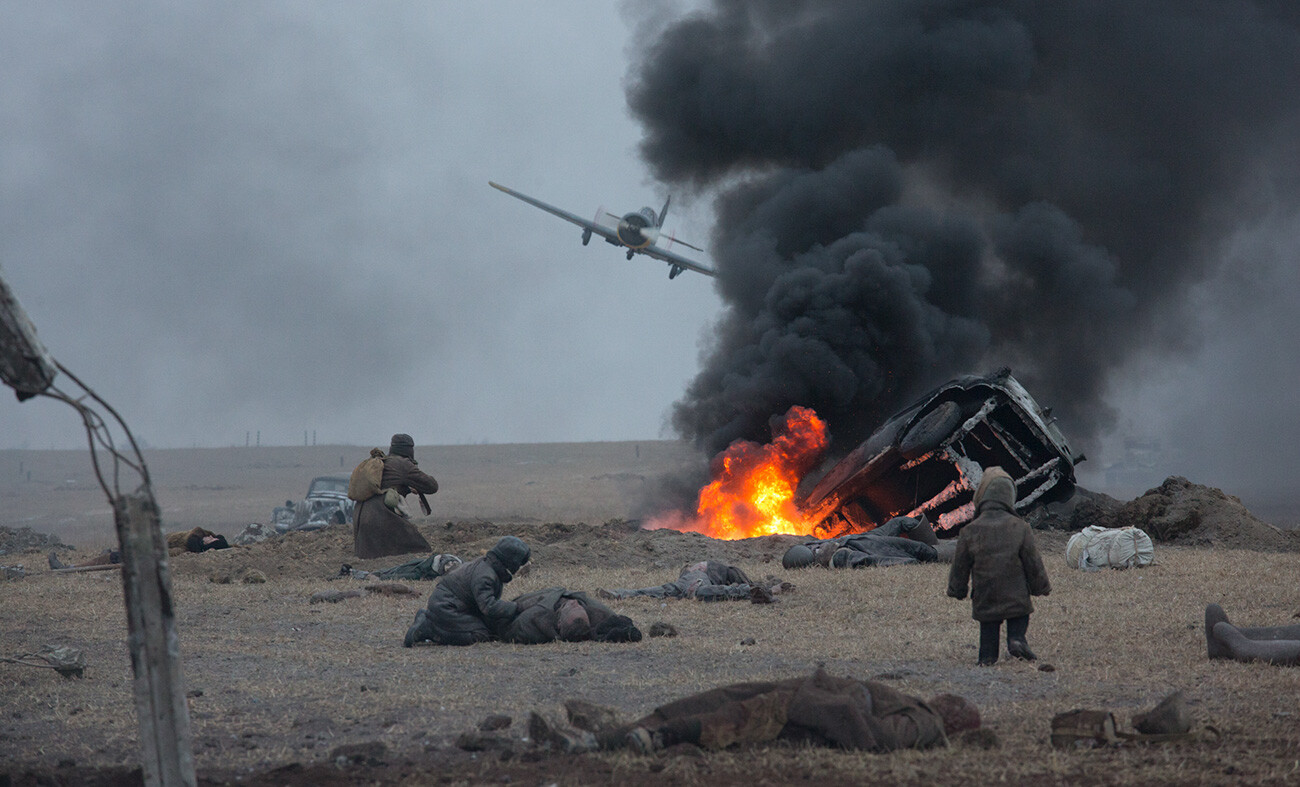
The movie has six large episodes of air combat. Initially, the director wanted to film real aircraft of wartime models – Soviet Yak-1 and German ‘Messerschmitts’. There were airworthy models in the Czech Republic. However, the pandemic happened, and the filming of ‘Air’ was put on hold. German even managed to shoot another movie during COVID – his movie ‘House Arrest’ was shown in the ‘Un Certain Regard’ category of the Cannes Film Festival in 2021.
When the work on ‘Air’ continued, the Czech option was no longer viable, and they had to film modern aircraft with some computer ‘make up’ put on later to make them look like authentic models. Close-ups of actresses inside cockpits were filmed with the help of the so-called gimbals – special pivoted machines that imitated nosedives or curves – with the background of LED screens showing real footage of the sky.
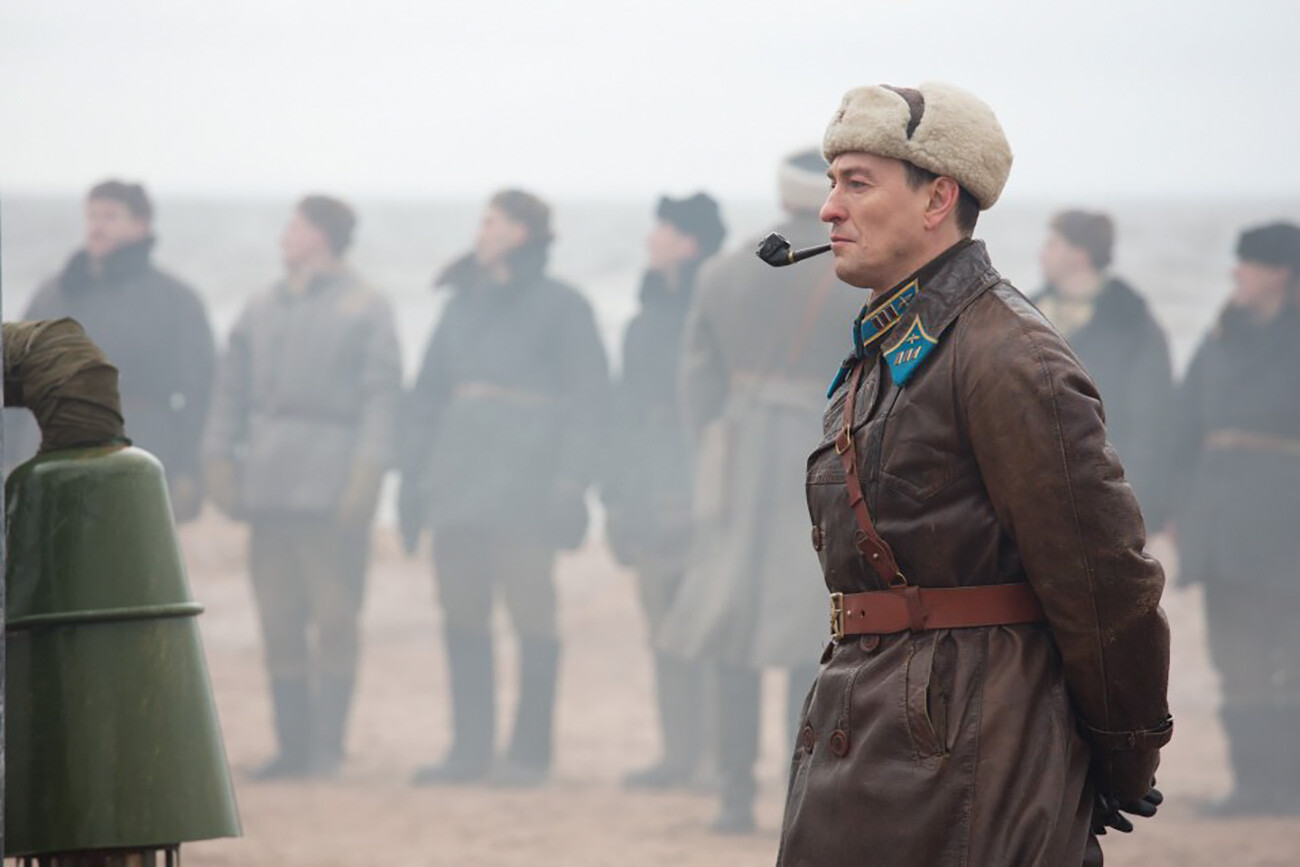
Alexey German is the son of Alexey German Senior, a great Soviet and Russian director, the leader of the so-called ‘Leningrad School.’ This group of directors of the ‘Lenfilm’ studio was brought together in the 1960s-1980s by a common aesthetic platform: the rejection of the cliches of socialist realism, the breach of rigid genre plots, and the strive for maximal authenticity of the environment and the actor’s presence on screen.
The directors of the ‘Leningrad School’ especially often appealed specifically to the topic of war. You may recall such movies as ‘Trial on the Road’ and ‘Twenty Days Without War’ by German, ‘Gunpowder’ by Viktor Aristov, ‘Summer Trip to the Sea’ and ‘Torpedo Bombers’ by Semyon Aranovich, and others. ‘Air’, in many respects, inherits from the ‘Leningrad School.’ This is not a parade-like war film – the movie demonstrates the perpetual change of seasons and almost no sun, there are no generals and pompous speeches, the essence of the war years is recreated with rare meticulousness.
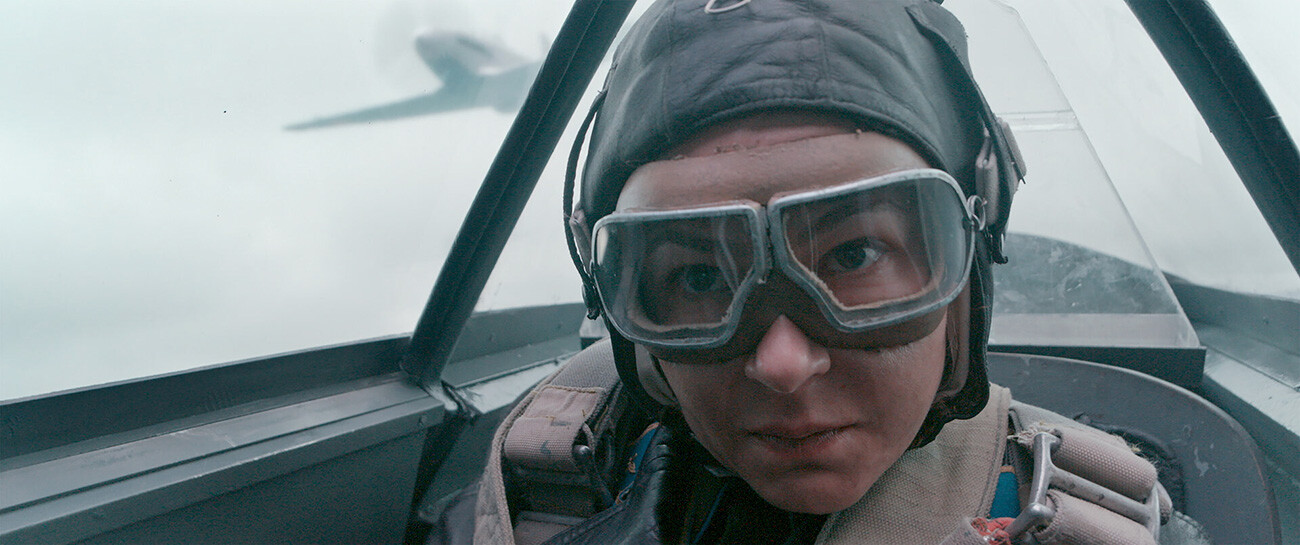
German is one of those rare directors, whose movies in different years were selected to compete in all the festivals of the ‘Big Three’ – the Cannes Festival, the Venice Festival, and the Berlin Festival. Many of them received awards – in particular, in 2008 at the Venice Film Festival, German was awarded the Silver Lion award for Best Director for his drama ‘Paper Soldier.’ The largest audience success in Russia was brought to him by his film ‘Dovlatov’ (2018) – a biography of an extremely popular Soviet author who was forced to emigrate to the U.S. To this day, this movie remains one of the highest-grossing art films in the Russian box office.
‘Air’ is the most large-scale and time-consuming film by German to date. Its budget is almost 800 million rubles (about $9 million); the work on the movie took five years. What’s surprising – even in such a large-scale film, German’s hand is quite recognizable. The same long shots and unbelievably beautiful picture; the movie’s pushed-to-the-limit realism combines organically with its dreamscape atmosphere.
Dear readers,
Our website and social media accounts are under threat of being restricted or banned, due to the current circumstances. So, to keep up with our latest content, simply do the following:
If using any of Russia Beyond's content, partly or in full, always provide an active hyperlink to the original material.
Subscribe
to our newsletter!
Get the week's best stories straight to your inbox